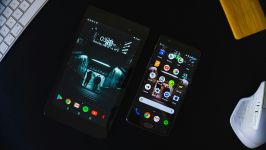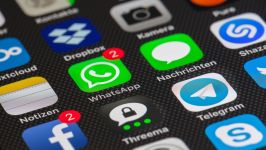Quantum cryptography has long been considered the holy grail of cryptographers, allowing them to send messages with a technique which, thanks to the laws of physics, is guaranteed to only be readable between two parties. If anyone tried to intercept a quantum message, the message, or the means of decrypting it, would be destroyed and those sending and receiving the message would be alerted.
Or, so scientists thought.
While the underlying theory behind quantum cryptography is still solid, everything else - from equipment to human interaction- is not. Therefore a quantum encrypted message can still be intercepted and decrypted, according to quantum physicist Renato Renner.
For example, in 2010, a hacker developed a method of overwhelming a photon detector used in quantum encryption with a strong pulse. That pulse, The Register reports, can cause quantum equipment to malfunction and operate as normal, allowing a third party to intercept a message without alerting its users of a compromised system.
Since then, as Wired reports, other means of compromising quantum cryptography have been discovered. For example, the low-powered lasers used to send out an encrypted message today can only send out one photon - used to send both the key to decrypt a message and the message itself - at a time. But there is the possibility that such a laser will also send out a second photon with the same encrypted message. If this happens, all a hacker has to do is intercept the second photon.
But there is a new method of quantum cryptography which holds promise for encoders. It's called quantum key distribution and it doesn't try to prevent interlopers from decrypting information. Rather, the technique, as The Economist explains, aims to alert encoders that a particular line of communication isn't secure. This is accomplished by having one encoder send a series of photons - the particles which produce light - to the person receiving the message before sending an actual encrypted message. Each of these photon particles will have a certain property, like a spin of the particle or its polarity, which can't be reproduced due to the Heisenberg Uncertainty Principal - a quality of quantum physics which stipulates that one can never know both the spin and polarity of a particle at the same time.
If a third party attempts to tap a line in order to intercept a message, the some of the photons will be destroyed, alerting the two encoders that someone is trying to listen in. That technology is roughly 10 years away.
Even if the technique is mastered, quantum encryption still has one massive vulnerability: the human element. People are still capable of accidentally leaking the key to a message by accident. As physicist Richard Hughes, a Los Alamos National Laboratory scientist notes, "nothing is unbreakable."
Technically, it should take code-breakers longer than the existence of the universe to crack modern keys. But there are work-arounds thanks to advances in modern computing power, newer mathematical algorithms and the ability to install malicious spying programs.









